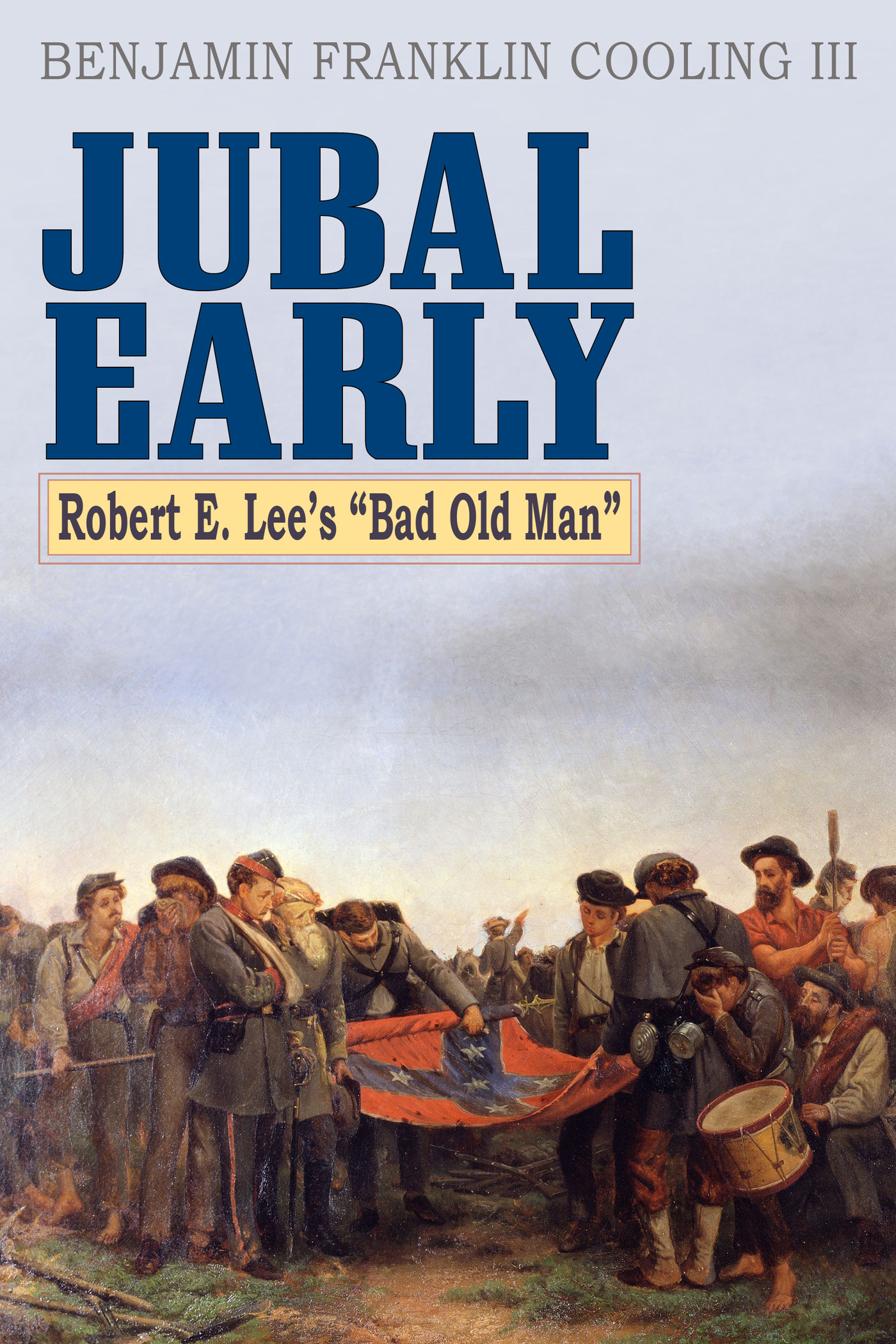Jubal Early
Jubal Early
Robert E. Lees Bad Old Man
Benjamin Franklin Cooling III
ROWMAN & LITTLEFIELD
Lanham Boulder New York London
Published by Rowman & Littlefield
A wholly owned subsidiary of The Rowman & Littlefield Publishing Group, Inc.
4501 Forbes Boulevard, Suite 200, Lanham, Maryland 20706
www.rowman.com
16 Carlisle Street, London W1D 3BT, United Kingdom
Copyright 2014 by Benjamin Franklin Cooling III
All rights reserved. No part of this book may be reproduced in any form or by any electronic or mechanical means, including information storage and retrieval systems, without written permission from the publisher, except by a reviewer who may quote passages in a review.
British Library Cataloguing in Publication Information Available
Library of Congress Cataloging-in-Publication Data
Cooling, Benjamin Franklin, III, 1938
Jubal Early : Robert E. Lee's bad old man / Benjamin Franklin Cooling III.
pages cm
Includes bibliographical references and index.
ISBN 978-0-8108-8913-2 (hardcover : alk. paper) -- ISBN 978-0-8108-8914-9 (ebook)
1. Early, Jubal Anderson, 1816-1894. 2. Generals--Confederate States of America--Biography. 3. United States--History--Civil War, 1861-1865--Biography. 4. United States--History--Civil War, 1861-1865--Campaigns. 5. Confederate States of America. Army--Biography. I. Title.
E467.1.E13C66 2014
355.0092--dc23/p>
[B]
2014015338
 TM The paper used in this publication meets the minimum requirements of American National Standard for Information Sciences Permanence of Paper for Printed Library Materials, ANSI/NISO Z39.48-1992.
TM The paper used in this publication meets the minimum requirements of American National Standard for Information Sciences Permanence of Paper for Printed Library Materials, ANSI/NISO Z39.48-1992.
Printed in the United States of America
In memory of
Major General Joseph Brown, USAF
Commandant, Industrial College of the Armed Forces
National Defense University, 20102013
A son of VMI and acolyte of Stonewall Jackson who would have appreciated Old Jube as
Jacksons successor
Acknowledgments
The most immediate aid and counsel came from Walton B. Owen, Gail Stephens, Fred L. Ray, Ted Alexander, as well as Bennett Graff, and Martin Gordon of Rowman and Littlefield Publishing Group. But, ultimately we are all indebted to the post-holing and insightful work that has come before in capturing Jubal Anderson Early for posterity. An earlier corps of historians, such as Millard K. Bushong, Douglas Southall Freeman, Thomas A. Lewis, Edward J. Stackpole, Frank Vandiver, and Jeffrey Wert, have been joined by a new cohort led by William C. Davis, Richard R. Duncan, Gary Gallagher, Charles C. Osborne, Scott C. Patchan, Thomas E. Schott, and Gary C. Walker, as well as Daniel T. Davis and Phillip S. Greenwaltall of whom have contributed to the body of knowledge as reflected in the present book.
Preface
What do we really need to know about Jubal Anderson Early after 150 years? What is important about Old Jube at this time of the Civil War sesquicentennial? Called by Robert E. Lee his bad old man, Early has had his biographies, including Millard K. Bushongs Old Jube: A Biography of General Jubal A. Early (1955) and Charles C. Osbornes Jubal: The Life and Times of General Jubal A. Early, C.S.A. (1992). Gary Gallagher and Thomas E. Schott have written on aspects of the man and his place in history (see bibliography). More recently this pair in particular has scrutinized Early as a Whig-Unionist who was reluctant to secede from the Union but wedded to his states destiny and became a virulentnay, rabidYankee-hater and exponent of Lost Cause apologia.
So what are the remaining, gnawing questions about this preeminent Confederate general who perhaps came closest to ending the war on Confederate terms in 1864 yet within two months essentially lost that war for the South? Why pay attention after a century and one-half to a politically incorrect figure in American history who came closest of anyone to taking Washington in the most crucial election year of the period; to capturing, killing, wounding, or even dismissing Abraham Lincoln from the White House and perchance changing the course of American history; even rendering emancipation moot? Perhaps the answer lies in the blunt phrase but who didnt!
At this point, Jubal Early may be said to have been the following:
Reasonably successful country/small-town lawyer
West Pointtrained/citizen solder and Confederate general officer
Memoirist, Confederate apologist, influential war veteran
Submissionist, renegade, controversialist
Arthritic, crabbed survivor of an era
We know of Jubal Earlys role from Bull Run to Appomattox, or do we? How can we explain his rise from mere regimental to corps and independent army commander? Was he a professional soldier because he went to West Point, or was his prewar duality of soldier and lawyer simply replicating any number of citizen soldiers who at one time or another volunteered to serve community and government under contract and then return Cincinnatus-like to their native plows? Was he the first or merely among the very few of Lees lieutenants who came to embrace if not fully understand the implications of what modern historians term a hard or destructive war? And, as a subordinate at all levels, was he merely a good fighter or some latent master of command, some risk-taking strategist or miracle worker whoby mid-1864was about all Lee had left in the generals cabinet? Was Early the tenacious combatant in the image of Stonewall Jackson, with distinct tactical, operational, even strategic abilities, but compromised by weaknesses in reconnaissance, use of cavalry, and irresolution at pivotal moments between mediocrity and brilliance? Did Early blink before the forts of Washington in July of that year when he could have ended the Civil War on Confederate terms? And was his relative obscurity in the pantheon of rebel leaders what baffled Union civilian and military leaders, allowing him to reach even that cusp of success virtually unnoticed in the first place?
One of the earlier deans of Civil War military studies, T. Harry Williams, controversially posited that the most distinguishing feature of Southern generalship is that it did not grow. Robert E. Lee and other generals were pretty much the same men in 1865 that they had been in 1861. With that, Williams set in motion the next generation of argument that so mesmerizes Civil War students today. Was this true of a general like Jubal Early? If soand there is certainly room to conclude that he fit Williamss paradigmthen how do we explain some things? What was his quirk of personality, style, and character that enabled this war chieftain to defy his own demise and enabled his Army of the Valley District, subsequent Shenandoah Valley disasters in the fall notwithstanding, to gain Lee and the Confederacy perhaps six months of additional life? Or was Early always a forlorn hope, a sacrificial lamb, Lees convenient tool, like any loyal subordinate? What did his men think of him? How well regarded or not was Old Jube in the eyes of his opponents? Did he maneuver Confederate competitors out of positions of trust and rank? And, most important, how did this reluctant secessionist from Virginias Piedmont become the preeminent spokesman for postwars so-called Lost Cause? Even then, was there something more behind the unrepentant, unreconstructed Jubal Earlya driving force to redeem himself in the eyes of Marse Robert and the prostrated South that blamed him for defeat? And what did this hard-swearing, hard-drinking, fusty, nineteenth-century American leave as a portrait to posterity?
Next page
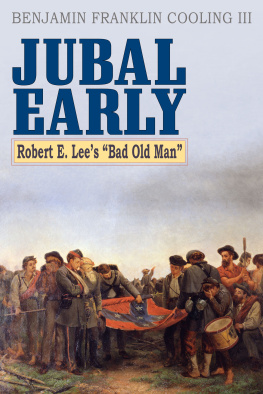

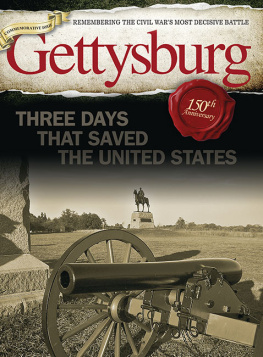
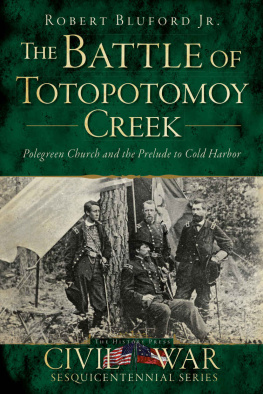
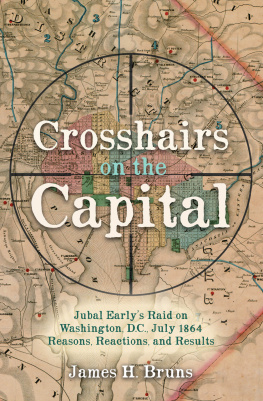
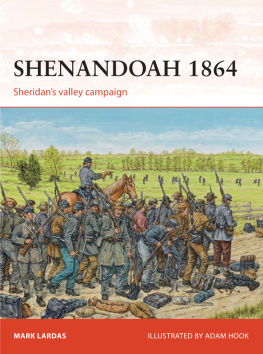
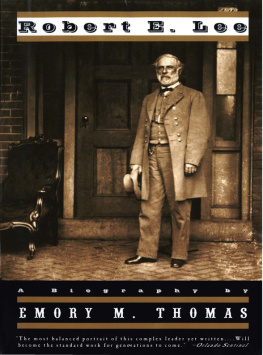
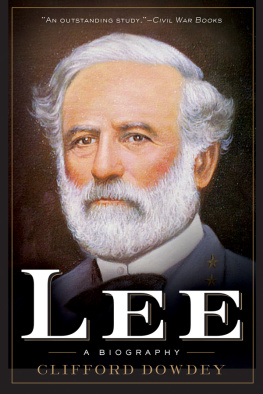
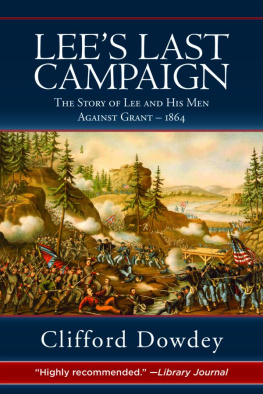
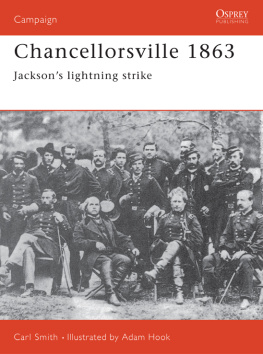
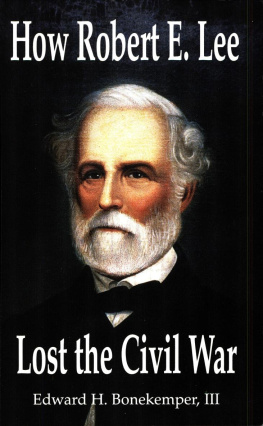
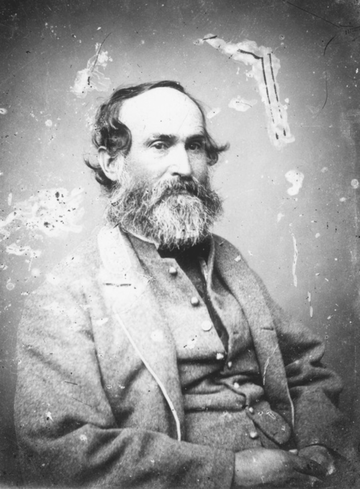
 TM The paper used in this publication meets the minimum requirements of American National Standard for Information Sciences Permanence of Paper for Printed Library Materials, ANSI/NISO Z39.48-1992.
TM The paper used in this publication meets the minimum requirements of American National Standard for Information Sciences Permanence of Paper for Printed Library Materials, ANSI/NISO Z39.48-1992.